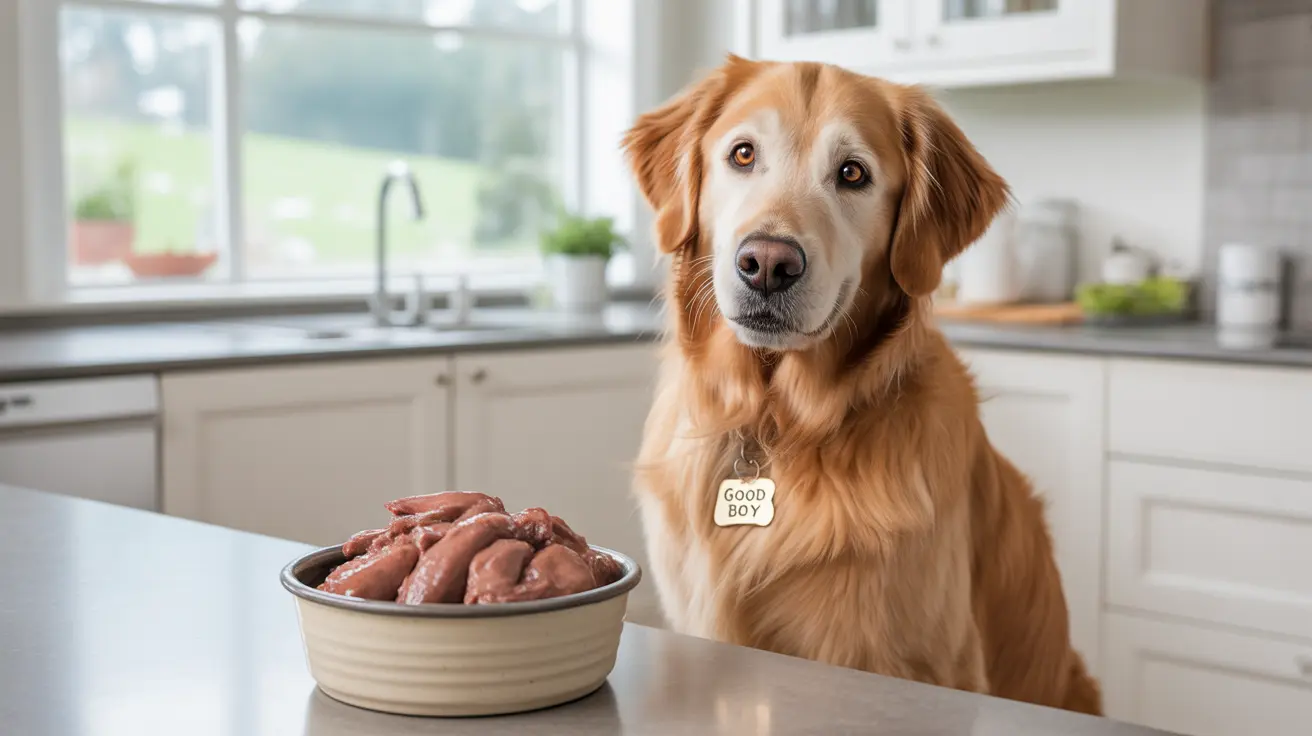Introduction
Many pet owners wonder if chicken liver is good for dogs everyday, especially when dealing with picky eaters. While chicken liver is packed with essential nutrients that can benefit your dog's health, feeding it daily requires careful consideration and proper portioning to ensure safety and optimal nutrition.
In this comprehensive guide, we'll explore the benefits and risks of daily chicken liver consumption for dogs, proper serving sizes, and how to safely incorporate this nutrient-rich organ meat into your pet's diet.
The Nutritional Power of Chicken Liver
Chicken liver is a nutritional powerhouse for dogs, containing high levels of protein, vitamins, and minerals. A single serving provides approximately 26 grams of protein and 9mg of iron, making it an excellent source of essential nutrients for your canine companion.
Key nutrients found in chicken liver include:
- Vitamin A for vision and immune health
- B-complex vitamins for energy metabolism
- Iron for healthy blood formation
- Zinc and phosphorous for bone health
- Omega-3 fatty acids for skin and coat health
Safe Serving Guidelines for Daily Feeding
When considering if your dog can eat chicken liver everyday, portion control is crucial. For a 50-pound dog, the recommended serving is 2-3 ounces (about 85g) per day. Smaller dogs require proportionally less, while larger breeds may handle slightly more.
Important serving guidelines:
- Limit liver to 10% of total daily diet
- Adjust portions based on dog size
- Monitor your dog's reaction when first introducing liver
- Consider splitting daily portion into multiple meals
Preparation Methods and Safety Considerations
Proper preparation is essential for safely feeding chicken liver to your dog. Always cook the liver thoroughly to eliminate harmful bacteria like salmonella. Avoid using oils, seasonings, or additives that could upset your dog's stomach.
Safe preparation steps:
- Clean the liver thoroughly
- Cut into small, manageable pieces
- Simmer or boil until fully cooked
- Allow to cool before serving
- Store unused portions properly
Potential Risks and Warning Signs
While chicken liver can be fed daily in appropriate amounts, there are potential risks to consider. The most significant concern is vitamin A toxicity from overfeeding. Signs of vitamin A toxicity include:
- Joint pain and stiffness
- Digestive issues
- Changes in behavior
- Loss of appetite
- Dehydration
- Weight loss
Alternative Feeding Schedules
If daily chicken liver feeding concerns you, consider these alternative schedules:
- 2-3 times per week as a supplement
- Alternating between different organ meats
- Using as a high-value training treat
- Mixing with regular meals in smaller amounts
Frequently Asked Questions
Can my dog eat chicken liver every day, and what are the health risks of overfeeding?
Dogs can eat chicken liver daily when properly portioned. However, overfeeding can lead to vitamin A toxicity. Stick to the recommended serving size of 2-3 ounces per 50 pounds of body weight, and never exceed 10% of their total daily diet.
How do I cook chicken liver safely for my dog, and what methods are recommended?
The safest method is to simmer or boil chicken liver without seasonings or oils. Ensure it's fully cooked to eliminate bacterial risks, then cut into appropriate-sized pieces for your dog's size to prevent choking.
What are the nutritional benefits of chicken liver for dogs, and how does it compare to other liver types?
Chicken liver provides essential proteins, vitamins A and B, iron, and omega-3 fatty acids. While beef liver contains more vitamin A, chicken liver is often more digestible and has a lower calorie content, making it suitable for daily feeding.
How much chicken liver should I feed my dog per day, and what is the recommended portion size?
For a 50-pound dog, feed 2-3 ounces of liver daily. Adjust portions proportionally for smaller or larger dogs, and ensure liver doesn't exceed 10% of their total daily food intake.
What are the signs of vitamin A toxicity in dogs if they eat too much chicken liver, and how can I prevent it?
Signs of vitamin A toxicity include joint pain, digestive issues, lethargy, and weight loss. Prevent toxicity by strictly following recommended portion sizes and monitoring your dog for any adverse reactions.
Conclusion
When properly portioned and prepared, chicken liver can be a healthy daily addition to your dog's diet. The key is moderation and careful monitoring of your pet's response. If you're unsure about daily feeding, consult with your veterinarian to create a feeding plan that best suits your dog's individual needs.






